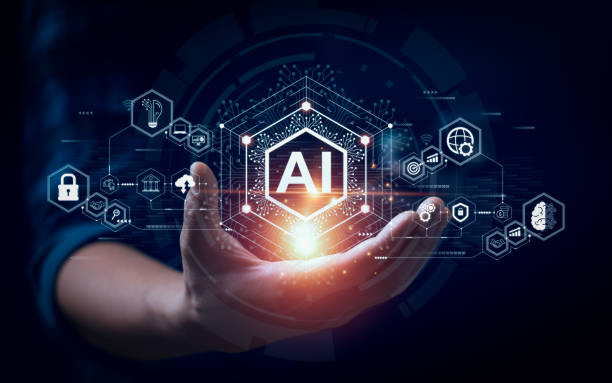Introduction
In today’s digital landscape, leveraging artificial intelligence (AI) has become increasingly essential for enhancing search engine optimization (SEO) efforts. But before delving into the myriad ways AI can revolutionize SEO practices, it’s crucial to grasp what we mean by “AI.”
In simple terms, AI, particularly generative AI like ChatGPT, functions as a highly advanced autocomplete tool. It draws upon vast datasets it has processed to create text or images. However, while AI excels at tasks like summarizing information and short-form writing, it struggles with grasping broader contexts and nuances. Therefore, a degree of skepticism is warranted when interpreting AI-generated outputs.
Enhancing Keyword Research with AI Tools
One of the primary areas where AI excels in SEO is keyword research. By leveraging AI tools, SEO professionals can streamline the process of brainstorming keyword ideas and gaining insights into searchers’ intent.
Using AI to suggest seed keywords is a game-changer. These seed keywords serve as the starting point for keyword research, helping SEO practitioners uncover related terms, subtopics, and concepts. Additionally, AI can analyze search engine results pages (SERPs) to discern various search intents, informing content creation strategies to align with prevalent user needs.
Elevating Content Creation
AI serves as a creative ally in content creation, rather than a replacement for human ingenuity. It can dramatically speed up the process of brainstorming compelling titles and headers, thereby enhancing click-through rates and engagement.
Moreover, AI aids in grammar checking and editing transcripts, streamlining content refinement processes. Whether it’s polishing article paragraphs or refining YouTube video transcripts, AI proves invaluable in ensuring content accuracy and readability.
Optimizing Content for SEO
Content optimization is a continuous process in SEO, and AI can significantly expedite certain tasks. AI tools can identify missing topics in content, ensuring that it covers all essential information that searchers need. By leveraging tools like Ahrefs’ Content Grader, SEO professionals can analyze top-ranking articles for a target keyword, pinpoint content gaps, and receive actionable recommendations for improvement.
Additionally, AI facilitates the creation of engaging meta descriptions, which play a crucial role in enticing searchers to click on your pages. AI-generated meta descriptions can be generated quickly and efficiently, saving valuable time while maintaining quality.
Streamlining Technical SEO
Certain aspects of technical SEO, such as schema markup and hreflang attributes, can be complex and time-consuming to implement manually. However, AI can simplify these processes, ensuring accuracy and efficiency.
For instance, AI can generate schema markup tailored to specific content types, enhancing visibility in search results and enabling eligibility for rich results. Similarly, it simplifies the creation of hreflang tags, ensuring accurate localization for multilingual and multinational websites.
Analyzing and Reporting Insights
AI excels in analytical tasks, aiding in data interpretation and report generation. From constructing complex regex queries to automating Google Sheets formulas, AI streamlines data processing workflows, allowing SEO professionals to derive valuable insights from performance data.
Moreover, AI facilitates Python script writing for automating SEO processes, empowering practitioners to efficiently collect and analyze data. By harnessing AI capabilities, SEO professionals can create visually engaging representations of performance data, facilitating strategic decision-making.
Dispelling AI Myths in SEO
As AI continues to shape the SEO landscape, it’s essential to address prevalent myths surrounding its impact on the industry. Contrary to misconceptions, Google does not penalize AI-generated content per se. However, it focuses on content quality, penalizing thin or low-quality content regardless of its origin.
While AI tools can enhance efficiency and quality, they should not be used to churn out low-quality, spammy content. Instead, AI should be leveraged judiciously to augment human expertise and creativity in content creation and optimization efforts.
Navigating AI Overviews and User Experience
With the introduction of AI Overviews in search results, SEO practitioners must adapt strategies to accommodate potential shifts in traffic patterns. Emphasizing deep, experiential content that AI cannot summarize succinctly ensures resilience in the face of evolving search dynamics.
Furthermore, prioritizing expertise, experience, authority, and trust (EEAT) in content creation aligns with Google’s quality guidelines and fosters user trust and engagement. By prioritizing quality and relevance in content creation, SEO professionals can maintain a competitive edge in an AI-driven search landscape.
Leveraging AI for Enhanced SEO Practices
In conclusion, AI holds immense potential for enhancing SEO practices across various facets of optimization. From keyword research and content creation to technical SEO and data analysis, AI tools offer unprecedented efficiency and effectiveness.
However, it’s essential to approach AI as a complementary tool rather than a standalone solution. Human expertise and creativity remain indispensable in navigating the complexities of SEO and crafting high-quality, user-centric content.
By leveraging AI judiciously and in conjunction with human expertise, SEO professionals can unlock new possibilities for driving organic growth and staying ahead in the ever-evolving digital landscape.






